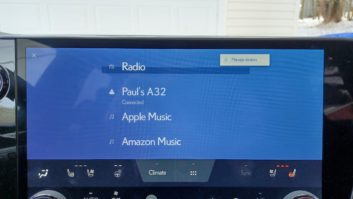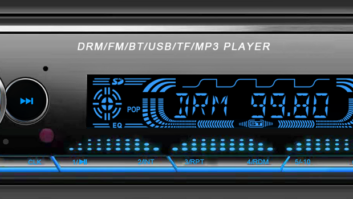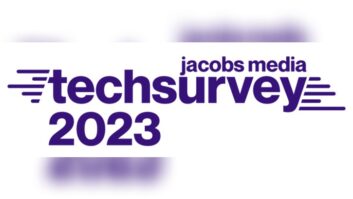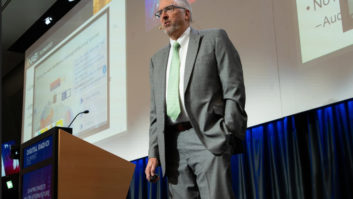Tuning in satellite radio
Sep 1, 2001 12:00 PM, Chriss Scherer, editor
On the road
From when the satellite radio licenses were first issued, I have been asked repeatedly if satellite radio will succeed. My answer then was a resounding maybe because the two main arguments had equal strengths, which can generally be brought down to two basic points:

- No one will pay for something that can be had for free; and
- Cable and satellite TV are successful and profitable, so the same model can be applied to an audio service.
An additional point is also usually made about the programming content itself. To borrow from the movies, if you play it, they will listen � and pay for it.
I wanted to see what the general public knew about the services. I started by visiting two home electronics franchises, Circuit City and Best Buy. I asked the salespeople questions, acting as a consumer with a little knowledge of the services. I was surprised that the salespeople knew quite a bit about the services. While the knowledge they shared was general and most likely learned in training or from a brochure, the information was accurate. There were some uncertainties about the actual monthly cost. Three of the four salespeople told me �about $10 a month� but would not get any more specific. (XM charges $9.95 per month and Sirius charges $12.95 per month.)
What surprised me more was the lack of obvious signage that satellite radio was coming and that hardware was available at this store. Though the actual receivers are not yet available, both stores had radios that are XM Ready, meaning that an additional unit and antenna are installed when you want to receive the service. Neither had any hardware for Sirius, but told me that they expected to be getting some soon.
The only signage indicating the upcoming service was a display at Best Buy that included an interactive video monitor showing promo videos and playing programming samples. Strangely, this monitor was placed at shin-level. Also, the audio was so low it could barely be heard over the background noise of the store. This display also had tri-fold brochures on the service. I had to ask for a brochure from Circuit City, and they could only find one on XM. I was told to check back later to see if any for Sirius would be available.

When I said I wanted to subscribe to a service, both stores weren’t sure what to do. One salesperson told me to go to the provider’s website. The other said that he thought he could process a subscription, but he needed to write the hardware sales order first.
When I asked each saleperson if he would subscribe to the service, each replied with a considered yes. At this point, I revealed that I was very familiar with the services, and that I was observing what the word on the street was concerning satellite radio. After showing my hand, I again asked if that salesperson would subscribe to satellite radio. Their answers did not change.
The hardware cost was not a major concern to them, which started at $400 for a complete system, nor was the monthly fee. All of my test subjects liked the idea that they could receive something new and different, and some of it without commercials.
So this leads me back to the original question as to whether or not satellite radio will succeed. While it seems that public awareness is still not very high, the people that are familiar with it (including one of my coworkers), all have expressed an interest in it. It’s safe to say that once the services are active, interest will rise.
Despite the lackluster showing I experienced, I think the services will succeed, at least for a while. The longevity of the services is still open for discussion.
Chriss Scherer, editor
[email protected]
Chriss will participate in the Radio Roundtable at the 2001 Central New York Regional Convention in Verona, NY on September 13. The event is organized by SBE chapter 22.












